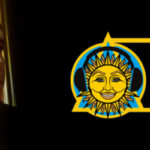In a recent article, "Corriere della Sera" columnist Federico Rampini put the well-known artificial intelligence (AI) ChatGPT to the test, entrusting it, as an experiment, with the preparation of a journalistic essay. The experiment succeeded (Rampini rated the AI's work as "satisfactory") and the journalist then went on to examine, citing some U.S. academics, the spillovers in the social field, particularly in education, not only of ChatGPT but of the entire digital transition of which the aforementioned chatbot's algorithm represents only the tip of the iceberg.
Digital transition. To what?
During the pandemic period, before the authorities surrendered to the evidence that remote education (in Italy called DAD, "teaching at a distance") had turned out to be a disaster on all fronts, we long heard the mass media orchestra remarking that the vaunted DAD was the future of education. That the digital transition was one of the many innovations with respect to which "there is no alternative" (a rather original mantra in a society that claims to be democratic) could already be inferred from the fact that both the Conte II government and the Draghi government had felt the need to create an ad hoc ministry, later downgraded by the Meloni government to a mere department of the Cabinet.
But if the digital transition can be kept out of schools far more difficult will be keeping it out of students' homes. If ChatGPT is perfectly capable of creating journalistic essays that would satisfy a professional like Rampini, one can imagine how difficult it would be, through such a chatbot, to draft a simple essay or do homework. It add, clearly, fuel to the fire: the chatbot expresses itself, already, enormously better than most students attending primary and secondary schools and, not insignificantly, produces different content each time, making it virtually impossible for the teacher to verify whether or not a paper has been produced through artificial intelligence. Ça va sans dire, ChatGPT is also enormously more educated than the vast majority of teachers and, although it frequently runs into errors that, to an educated person, are very gross, it is highly unlikely that a young student will become suspicious.
Do we still need teachers?
Already today, many teachers, pressured by their "overly curious" pupils, answer incorrectly or at any rate haphazardly to the questions posed to them: if one trusts flesh-and-blood teachers unquestioningly, even more so will trust algorithms, covered as they are with the ermine cloak of supposed scientific infallibility.
It may be noted, en passant, that if one considers education as a mere practice of hoarding notions, it could already virtually do without teachers. There are already many platforms that allow on-demand specialized courses in the form of videos and presentations, as well as, in case of doubts, one can always question a chatbot such as ChatGPT and get "satisfactory" answers. It is by no means certain that the future outlined for education, at least public education, is not this.
Artificial intelligence, of course, will not be the boon that it is depicted to be, not least because, to begin with, current chatbots are in any case responding to the ideological orientations of their programmers and funders and certainly not to criteria of neutral objectivity; but the issue goes deeper. It is not a matter, at least here, of deploring, in the company of Byung-chul Han, the arrogant expansionism of the world of "nonthings," nor is it a matter of operating like the critics of those who fear the disappearance of the dimension of authentic existence (as Gilles Lipovetsky does). The main question remains what role canonical education and especially the teacher play in a world that already possesses, at least at the potential level, the capacity to replace both.
What kind of school do we want?
The reflection inevitably, and in an inescapable way, involves how a system-country thinks of its schools: that is, whether as places destined for the accumulation of notions or whether as social gyms intended for the formation of man (and woman) as a whole. If in fact the computer constitutes an invincible competitor in the ability to store and browse data, man maintains an enormous, and above all unassailable, advantage in what makes him unique: humanity, precisely. No artificial intelligence will ever be able to teach how to be in the world. Nor, for example, how to think. It is not surprising, for example, that one of the first statements one comes across "conversing" with ChatGPT is one in which the bot confesses that it is incapable of "thinking," agreeing with the famous Heidegger's maxim that "science does not think."
Education for people, not the other way around
Education thus has a bright future if we increasingly begin to think of it as a school of learning to think and interact and not merely of accumulating data. The prospect, moreover, in no way undermines the value of schooling, dear to the most liberal circles, which frame it as a kind of preparatory vestibule to the workforce. The most technical tasks, that is, those that will least need the interactive side of interpersonal relationships, are already the most vulnerable to competition from AI; conversely, any task that involves an effective ability to communicate and especially to think remains, naturaliter, irreplaceable by machines.
Here, too, the much-reviled humanistic education and the much-hated philosophy can do a great deal, both for the integral development of the individual and for the economic development of a system-country. All, of course, provided that an education and a school system are asked to do these things. If, on the contrary, one would expect scientific massification, a deliberate work of preventive deconstruction of thought, the pollution of noetic processes, the dissolution of notions in the vast sea of narratives, then it is certain that nothing could do better than the current model of coexistence between new technologies, jerry-rigged school curricula and unprepared teachers.
As also mentioned here, science is essentially problem solving: it is just a matter of understanding what problem we intend to solve. Which implies that sooner or later we will have to decide, upstream, whether ignorance, in today's world, is still a problem.
Research fellow at the Machiavelli Center. A philosophy scholar, he has been working for years on the topic of the revaluation of nihilism and the great German Romantic philosophy.









Scrivi un commento